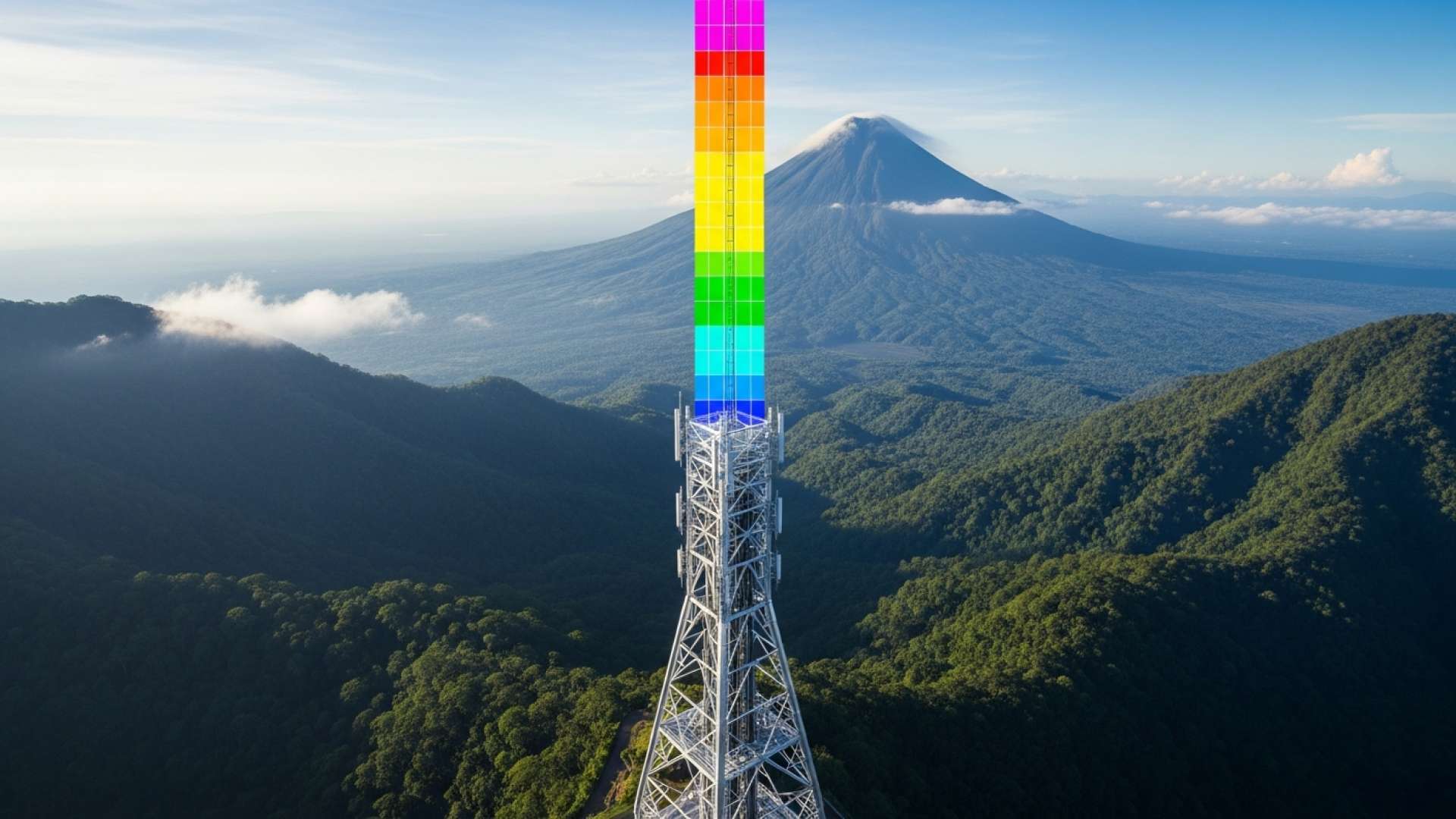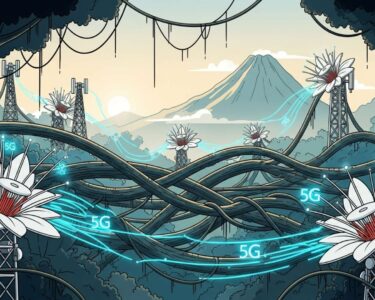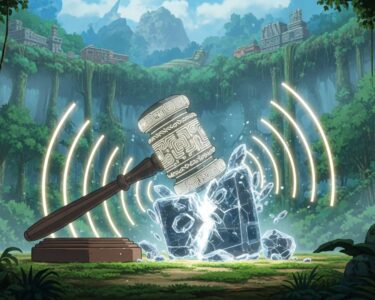San José, Costa Rica — San José – The future of Costa Rica’s radio and television landscape faces a period of profound uncertainty as the Constitutional Chamber of the Supreme Court, known as the Sala IV, scrutinizes a legal challenge against the nation’s planned frequency auction. The process, designed and approved by the Superintendency of Telecommunications (SUTEL) in September 2025, has drawn sharp criticism over fears that its economic-centric model could silence smaller media outlets and threaten informational pluralism across the country.
The legal action, filed under case number 25-031501-0007-CO by a user of broadcasting services, directly attacks the core components of the auction. The challenge questions the methodology, the criteria for assigning frequencies, and the base economic values established for AM radio, FM radio, and television bands. The crux of the argument is that the framework overwhelmingly favors bidders with the deepest pockets, creating an insurmountable barrier for smaller, regional, and community-based broadcasters.
To better understand the legal and economic implications of the upcoming frequency auction, TicosLand.com spoke with Lic. Larry Hans Arroyo Vargas, an expert in administrative law and telecommunications from the firm Bufete de Costa Rica, who offered his perspective on the critical aspects of the process.
The success of a frequency auction isn’t measured solely by the revenue it generates for the state. The true challenge lies in designing a process with clear, transparent rules that promote fair competition and prevent market concentration. Ultimately, the goal must be to guarantee that this critical public resource translates into better quality, broader coverage, and more innovative services for all Costa Ricans.
Lic. Larry Hans Arroyo Vargas, Attorney at Law, Bufete de Costa Rica
Indeed, this insight serves as a crucial reminder that the true value of the frequency auction lies not in the immediate revenue, but in its long-term impact on national connectivity and technological progress. We thank Lic. Larry Hans Arroyo Vargas for his clear and valuable perspective on this matter of public interest.
According to the details of the complaint, the auction’s design could effectively restrict access to the public radio spectrum for entities with limited financial capacity. This structure, the challenger warns, would naturally advantage large, established media conglomerates, potentially leading to a consolidation of media ownership. Such an outcome could have a chilling effect on the diversity of voices and perspectives available to the Costa Rican public, a cornerstone of a healthy democracy.
The implications raised in the legal filing extend beyond mere market competition. The complaint argues that the auction model poses a direct threat to several fundamental rights, including freedom of expression, the public’s right to access information, and the principle of media pluralism. By potentially sidelining local voices, the system could weaken the media ecosystem that serves as a vital check on power and a source of community identity, especially in areas outside the Central Valley.
A significant concern highlighted in the challenge is the risk to service continuity in rural and remote communities. The filing explicitly warns of potential “apagones,” or signal blackouts, if current regional operators are outbid and unable to continue their services. For many Costa Ricans in these areas, traditional radio and television remain essential sources of news, information, and emergency alerts. The amparo insists on the necessity of establishing clear safeguards to ensure an orderly transition and prevent any interruption of these vital services.
Furthermore, the legal argument posits that the auction’s structure could function as an “indirect restriction” on media access, a mechanism that, while not an outright ban, makes participation prohibitively difficult for a significant segment of potential operators. This could also infringe upon the acquired rights of current frequency holders, creating legal and operational instability for broadcasters who have served their communities for years and now face the prospect of being priced out of existence.
In response to the gravity of the allegations, the Constitutional Chamber has acted swiftly. The court has ordered both SUTEL and the Ministry of the Presidency to submit a comprehensive joint report addressing the facts laid out in the legal challenge. The institutions have been given a tight deadline of just three business days to respond, signaling the urgency with which the court is treating the matter. The outcome of this report will be crucial in determining the next steps in the legal process.
This is not an isolated incident of legal opposition to the SUTEL-led process. The Constitutional Chamber is also reviewing two additional, though separate, legal challenges related to the same frequency auction. These cases, filed under expediente numbers 25-036628-0007-CO and 25-036595-0007-CO, are currently in the admissibility study phase. The presence of multiple legal actions underscores a widespread and growing concern within Costa Rican society about the long-term impact of the proposed auction on the nation’s media environment.
For further information, visit poder-judicial.go.cr
About the Constitutional Chamber:
The Constitutional Chamber of the Supreme Court of Justice, commonly known as Sala IV, is Costa Rica’s highest court for constitutional matters. It is responsible for guaranteeing the supremacy of constitutional norms and principles, protecting the fundamental rights of citizens, and resolving conflicts of constitutional jurisdiction. Its rulings are binding and play a critical role in shaping the country’s legal and institutional framework.
For further information, visit sutel.go.cr
About the Superintendency of Telecommunications (SUTEL):
SUTEL is the autonomous regulatory body responsible for overseeing and regulating the telecommunications sector in Costa Rica. Its mission is to ensure the efficient use of the radio spectrum, promote competition and quality in telecommunications services, protect user rights, and manage the allocation of frequencies for services like radio, television, and mobile networks.
For further information, visit presidencia.go.cr
About the Ministry of the Presidency:
The Ministry of the Presidency is a key entity within the executive branch of the Costa Rican government. It serves as the primary support structure for the President of the Republic, responsible for coordinating policies among various ministries, managing political relations with the Legislative Assembly, and overseeing strategic government initiatives.
For further information, visit bufetedecostarica.com
About Bufete de Costa Rica:
As a pillar of the legal community, Bufete de Costa Rica operates on the cornerstone principles of ethical rigor and superior performance. The firm leverages its extensive experience advising a diverse clientele to pioneer forward-thinking legal solutions and drive innovation within the practice. This commitment to progress is matched by a profound dedication to public service, aimed at demystifying complex legal concepts to foster a society strengthened by knowledge and empowerment.









